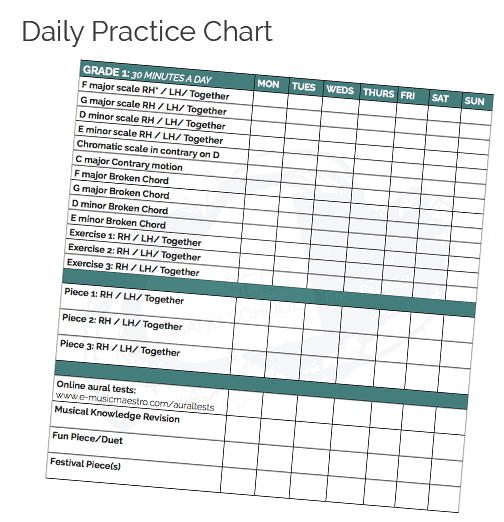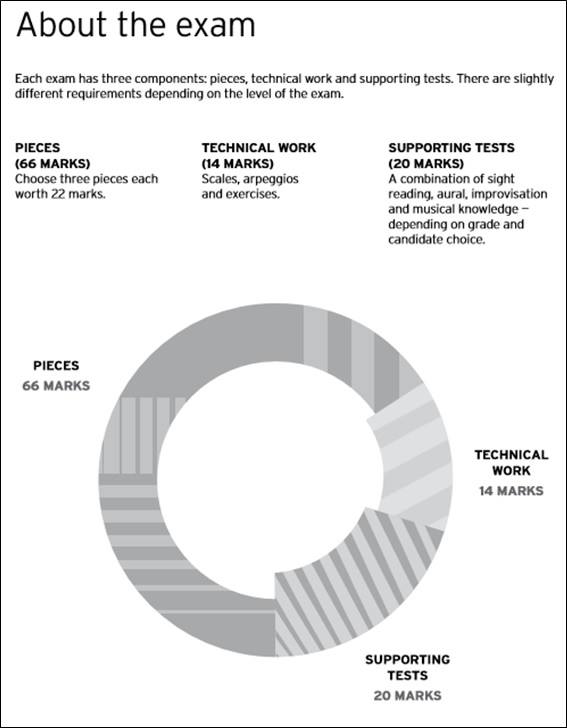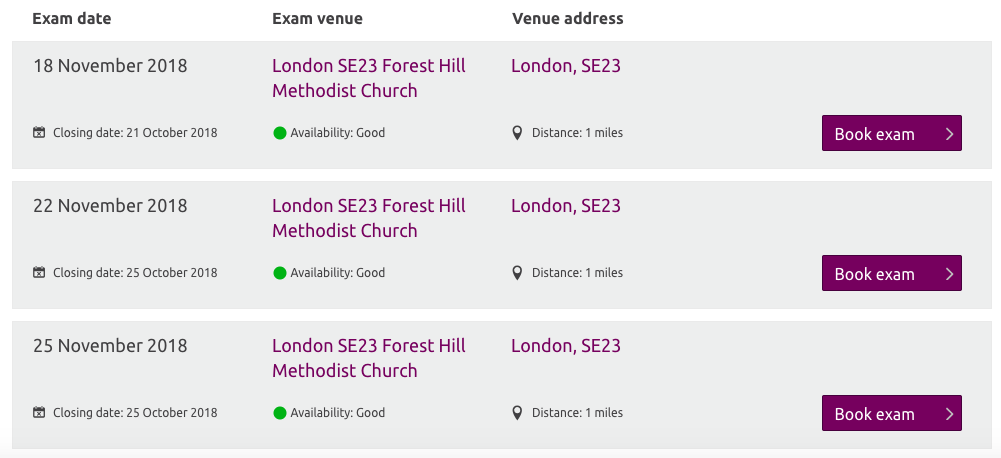Nb. This is an Archive Post containing out of date information.
 If you are preparing for an exam in Autumn 2018, here is the information you need to know in order to be ready for the next exam session.
If you are preparing for an exam in Autumn 2018, here is the information you need to know in order to be ready for the next exam session.
What Books Do I Need? Scale Book | Pieces | Aural Book | Sight Reading
Pass, Merit or Distinction? We only enter students when we feel they are ready to comfortably achieve a pass in their exam. However many students would like to aim higher and often ask us how to attain the Merit and Distinction marks. Preparation is the key for success. All students will be nervous on exam day so it is important that you have performed regularly so that you have strategies in place to cope with the nerves.
Our second tip is to thoroughly prepare aural and musical knowledge (MK) well in advance of the exam, not leaving it until the last few weeks before the exam. We have worksheets below for MK and there is a very comprehensive web site (e-Music Maestro) you can use every day at home for aural training in the run-up to the exams. You can even use this when you are on holiday or not near a piano.
Here are the dates for Trinity Piano Exams at the Forest Hill Centre.
All students must pass a mock exam by 13 October and process their own entries by the deadline listed above.
All students must perform their pieces at a festival or student recital before entering for the exam. This ensures that your pieces are performance-ready and gives you the confidence to perform under pressure.
29 September 2018: Student Recital. The ideal informal setting to try out your exam pieces. [Register Here].
For those looking for written feedback, we also have a competitive event:
29 September 2018: All Instruments Competition
What Should I Be Practising at home? Aural Tests: The online aural tests must feature at least twice a week in your practice schedule. There is a small monthly fee to subscribe to the tests (£2.99 for Grades 1 – 5) and you can send your progress chart to your teaching to see which areas need extra attention. https://www.e-musicmaestro.com/members/auraltests
What Should I Be Practising at home? Musical Knowledge: This section tests your knowledge of the theory of music. We have a handy worksheet for Initial for you to fill in, discuss with your teacher, and revise with your parents at home each week. You can produce your own worksheets for higher grades using this one as the basis. http://www.se22piano.co.uk/wp-content/uploads/Initial-Musical-Knowledge.pdf
What Should I Be Practising at home? Sight-Reading: Even if you are not choosing this as an option for your exam, all students must work through the sight-reading book as this will help prepare you for the next grade. Work through two exercises a week at home. Give yourself one minute to look through the piece: Check if there are any sharps or flats in the key signature. Use your rhymes to name the first note in each hand and put the correct finger number onto this note. If you have identified any black notes in the key, do make sure you touch the correct black key and rest your hand in this position. As you play, add in the dynamics, tempo marking and any other performance directions.
What Should I Be Practising Over the Summer break? Pieces, Scales and Exercises. You can see the breakdown of marks below. Your pieces are 66% of the marks, the Technical work (scales, broken triads/chords/arpeggios and Exercises) are 14% and the Supporting Tests (Musical Knowledge and Aural) accounts for 20% of the mark. Additional lessons can be booked with your teacher.

